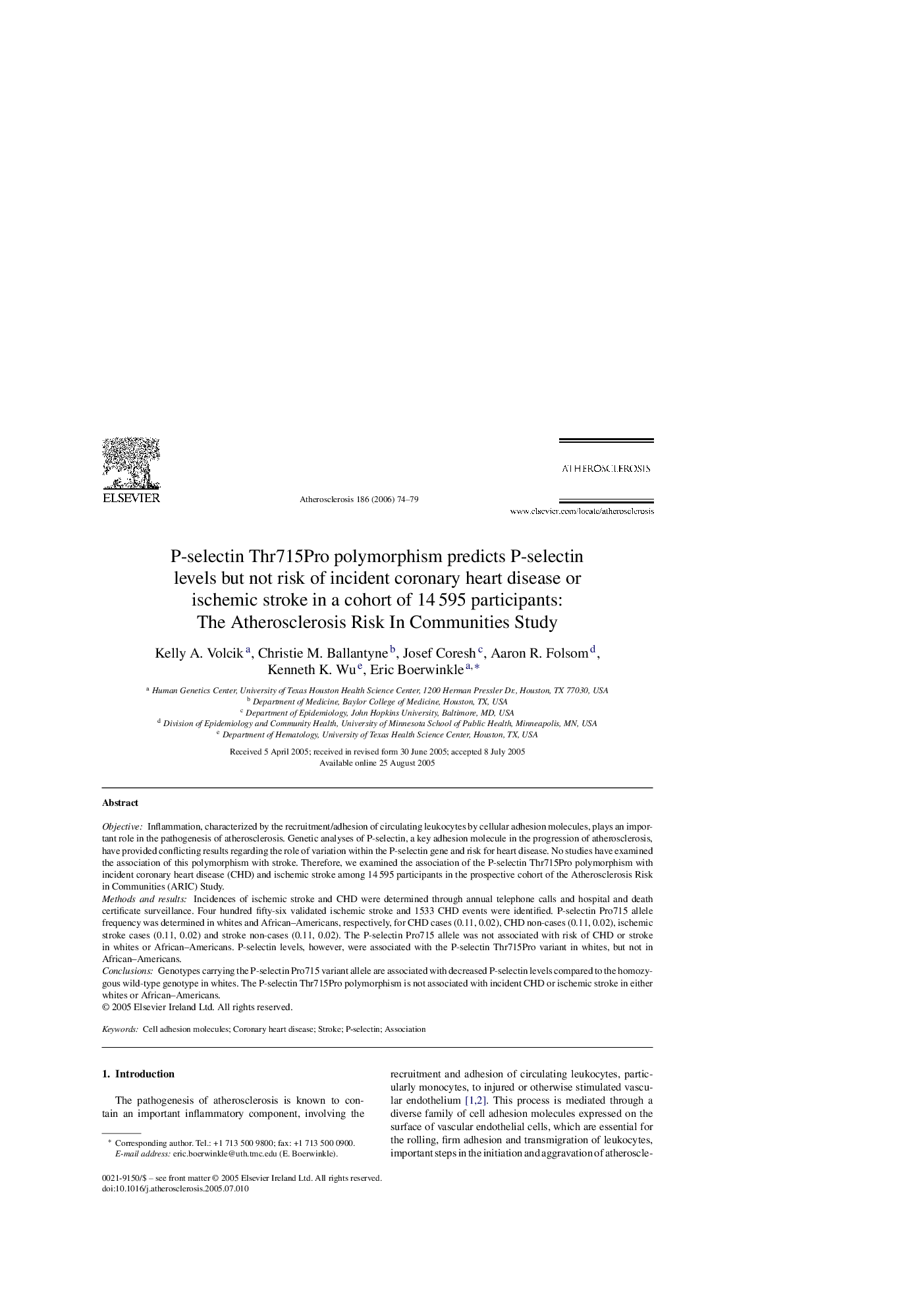| Article ID | Journal | Published Year | Pages | File Type |
|---|---|---|---|---|
| 2895363 | Atherosclerosis | 2006 | 6 Pages |
ObjectiveInflammation, characterized by the recruitment/adhesion of circulating leukocytes by cellular adhesion molecules, plays an important role in the pathogenesis of atherosclerosis. Genetic analyses of P-selectin, a key adhesion molecule in the progression of atherosclerosis, have provided conflicting results regarding the role of variation within the P-selectin gene and risk for heart disease. No studies have examined the association of this polymorphism with stroke. Therefore, we examined the association of the P-selectin Thr715Pro polymorphism with incident coronary heart disease (CHD) and ischemic stroke among 14 595 participants in the prospective cohort of the Atherosclerosis Risk in Communities (ARIC) Study.Methods and resultsIncidences of ischemic stroke and CHD were determined through annual telephone calls and hospital and death certificate surveillance. Four hundred fifty-six validated ischemic stroke and 1533 CHD events were identified. P-selectin Pro715 allele frequency was determined in whites and African–Americans, respectively, for CHD cases (0.11, 0.02), CHD non-cases (0.11, 0.02), ischemic stroke cases (0.11, 0.02) and stroke non-cases (0.11, 0.02). The P-selectin Pro715 allele was not associated with risk of CHD or stroke in whites or African–Americans. P-selectin levels, however, were associated with the P-selectin Thr715Pro variant in whites, but not in African–Americans.ConclusionsGenotypes carrying the P-selectin Pro715 variant allele are associated with decreased P-selectin levels compared to the homozygous wild-type genotype in whites. The P-selectin Thr715Pro polymorphism is not associated with incident CHD or ischemic stroke in either whites or African–Americans.
